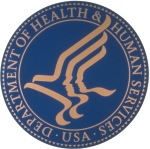Medicare to Intensify Audits in all 50 States
 The Centers for Medicare & Medicaid Services (CMS) recently confirmed that the Recovery Audit Contractors (RACs) will operate in all 50 states by the end of this year. RACs identify over payments and under payments by CMS to Medicare providers.
The Centers for Medicare & Medicaid Services (CMS) recently confirmed that the Recovery Audit Contractors (RACs) will operate in all 50 states by the end of this year. RACs identify over payments and under payments by CMS to Medicare providers.
The RAC program evolved from the three-year RAC demonstration project stipulated by the Medicare Modernization Act (MMA) of 2003. The Tax Relief and Health Care Act (TRHCA) of 2006 made the RAC program permanent and authorized CMS to expand it to all 50 states by 2010. The permanent RAC program limits the medical record review period to three years and prohibits audits on claims paid before Oct. 1, 2007. The program requires RACs to have a physician medical director and certified coders available to discuss denials with providers. CMS also announced the number of medical records RACs may request per National Provider Identifier (NPI) for 2009. CMS will likely adjust these limits each year.
Medical Record Limits for 2009 are:
- 10 medical records per 45-day period for solo practitioners;
- 20 medical records per 45-day period for 2 to 5 provider offices;
- 30 medical records per 45-day period for groups of 6 to 15 providers; and
- 50 medical records per 45-day period for groups of 16 or more providers.
Every group should start preparing a plan to deal with these audits. The old saying is “failure to plan, is a plan to fail”. Groups will need to develop a system for documenting each record request and track the audit of each claim to completion. As with any audit, if your group can’t provide the documentation of the services rendered, it is as if the service was never rendered. I have provided the RAC map of the four audit companies, the states they will audit and the contact numbers for each company.
- Diversified Collection Services 866-201-0580
- CGI Technologies and Solutions 877-316-7222
- Connolly Consulting, Inc. 866-360-2507
- HealthDataInsights, Inc. 866-376-2319
Billing for Ultrasound Guidance of Pain Blocks Could Trigger an Audit
 The Office of the Inspector General (OIG) is set to audit high volume ultrasound procedures. In 2007, 20 high-use counties accounted for 16% of Part B spending on ultrasound despite having only 6% of Medicare beneficiaries, the agency noted in a recent audit report. The services in these counties alone accounted for $336 million of the $2.1 billion in Part B spending on ultrasound services. Of the 20 counties in question, nine were in Florida; five in New York; three in New Jersey; and one each in Alabama, Michigan, and Texas.
The Office of the Inspector General (OIG) is set to audit high volume ultrasound procedures. In 2007, 20 high-use counties accounted for 16% of Part B spending on ultrasound despite having only 6% of Medicare beneficiaries, the agency noted in a recent audit report. The services in these counties alone accounted for $336 million of the $2.1 billion in Part B spending on ultrasound services. Of the 20 counties in question, nine were in Florida; five in New York; three in New Jersey; and one each in Alabama, Michigan, and Texas.
The OIG noted that these counties had highly irregular ultrasound billing statistics when compared with the rest of the country. A group of 672 providers each billed 500 or more claims with questionable characteristics. These providers collectively billed over half a million such claims representing over $81 million in Part B charges in 2007. Lack of a service claim by the ordering doctor for treating the beneficiary was the most common of the questionable characteristics.
OIG is stressing that CMS take strong action to weed out fraud and abuse in these ultrasound cases, recommending that the agency closely monitor ultrasound claims, flag providers with questionable claims and/or high amount of services billed and even revoke the Medicare billing numbers of providers that CMS determines are filing fraudulent claims.
If you currently bill for Ultrasound guidance for pain blocks, you should review your compliance and billing policies to insure that you are following the letter of the law on these procedures. If you are receiving a high percentage of denials or rejected claims this is the first sign that you are not billing these correctly and you should seek qualified advice on these before the OIG come calling with an auditor in tow.


